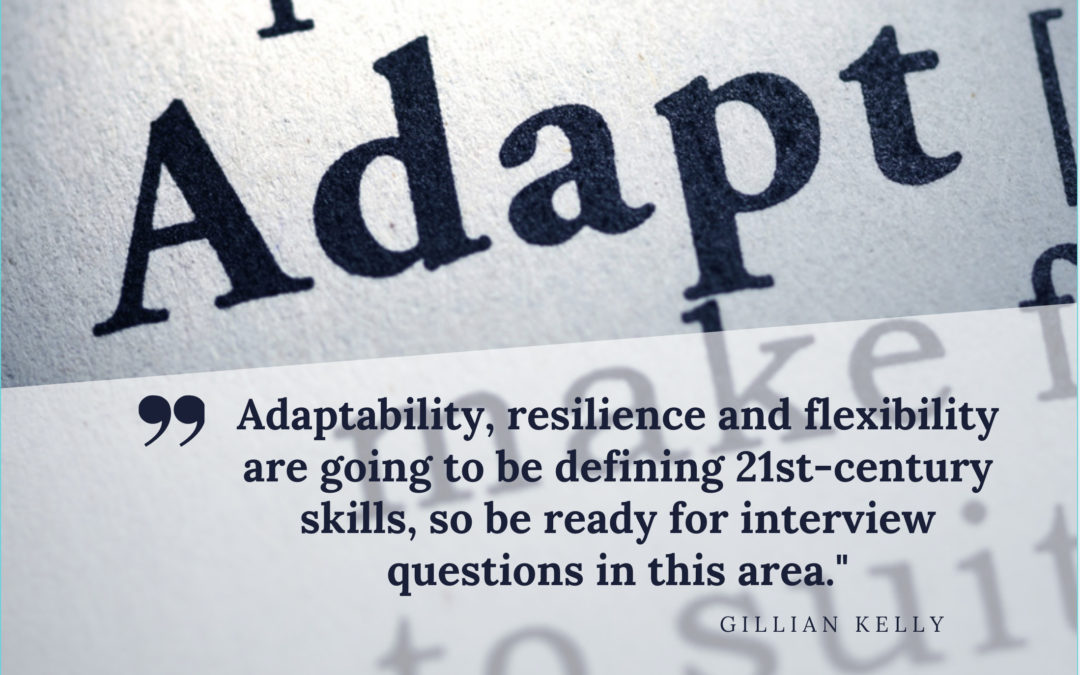COVID has put a new focus on adaptability as a key skill for success in the workplace. In fact, a recent June 2020 pulse survey by the Australian HR Institute placed agility, flexibility and resilience as three key skill areas that will need to be developed in their workforce post-COVID. Equally a LinkedIn research study in 2016 stated that 60% of hiring managers in their survey identified adaptability as the top soft skill they assess for.
So what types of questions can you expect in the interview to assess your strengths in agility and how should you respond?
The main characteristics of someone with strengths in agility, flexibility and adaptability include the ability to move quickly to new areas or approaches, to respond fluidly and effectively to change, and to adjust to new circumstances with poise and calmness.
Typical questions for adaptability, flexibility and agility might include:
- Tell me about a project that did not go according to plan. What corrections did you make and what were the results?
- Tell me about a time when you were asked to do something you had never done before. How did you respond?
- We all have to deal with change. Tell me about a time you needed to change an approach to a task or a project? How did you approach it and what was the result?
- Tell me about a time you had to learn a new technology or approach ?
- Tell me about a time when you had to adjust your working style in a team project?
- Tell me about a time when you have been working on a project that’s requirements changed last minute. What did you do?
When responding to these questions hirers will be listening to hear indicators that you staying calm under pressure, can adjust your approach or working style and that you can successfully apply new methods or tools
In your answers, you should put a focus on examples that show your comfort working in environments of uncertainty and change, and your openness to new ideas. Look for examples that evidence your past success adapting to shifting work demands, new challenges or conditions positively and supporting others to do the same. Relevant skills may include creative problem solving, responding to failure, or learning new skills. You may also highlight times where you have taken on new roles, or adjusted your ideas when your first solution wasn’t accepted.
Adaptability, resilience and flexibility are going to be defining 21st-century skills as the pace of change accelerates, so prepping for questions in this area is smart interviewing preparation.
Looking for assistance to refine your interview performance? Talk to our interview coaching team today about how we can help. Good luck!

